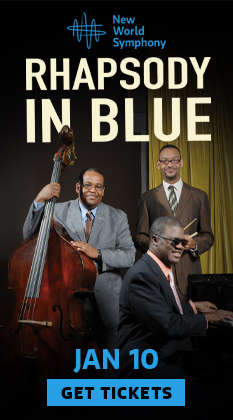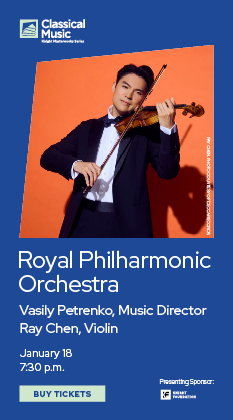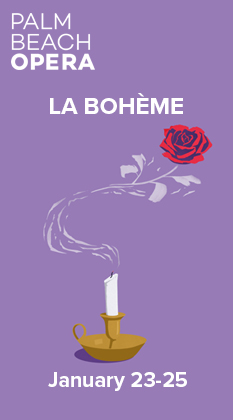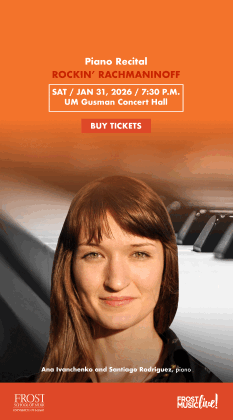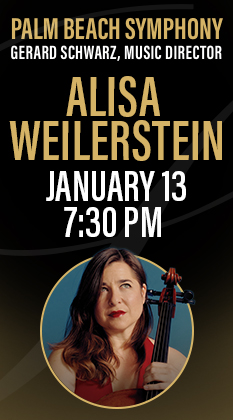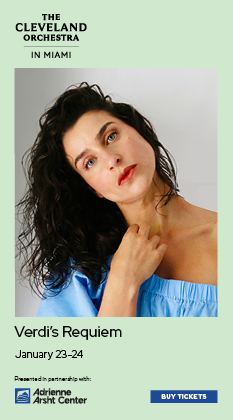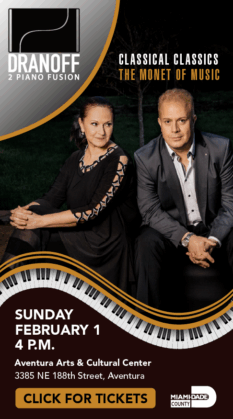Nicole Cabell shines brilliantly in Palm Beach Opera’s “Romeo et Juliette”
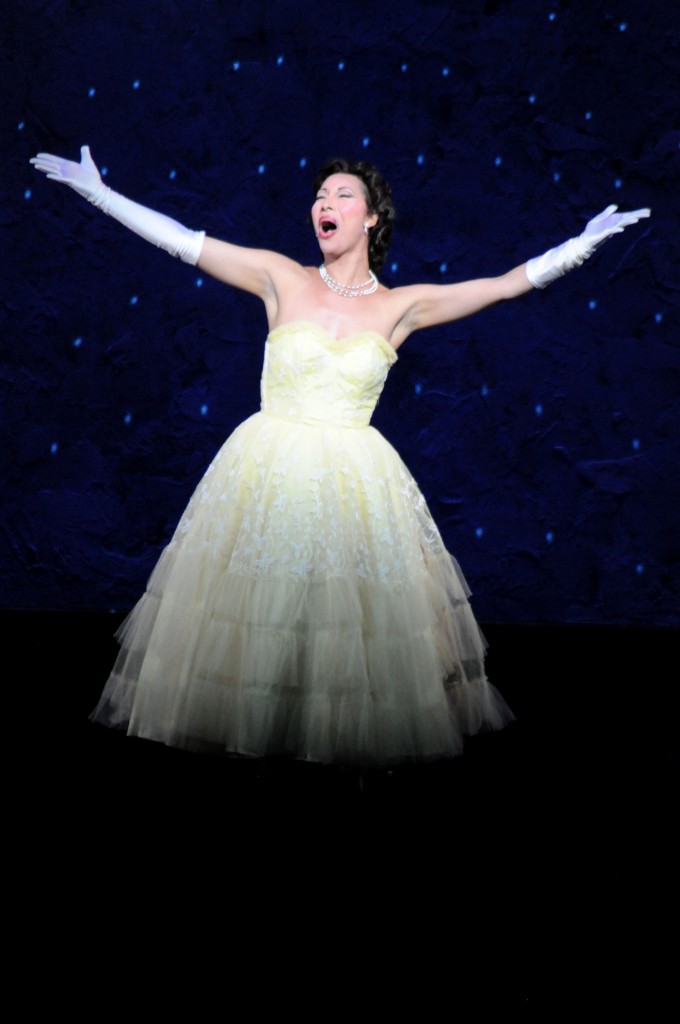
Nicole Cabell stars in Palm Beach Opera's production of Gounod's "Romeo et Juliette."
The balcony was a stark construction of girders. The sword fights morphed into knife fights. And Roméo and his associates spent the opera clad in neckties, business suits and fedoras.
Palm Beach Opera’s new production of Gounod’s Roméo et Juliette, which opened Friday at the Kravis Center in West Palm Beach, shifts the action from medieval times to post-World War II Italy, a change that infuses new energy into the work without substantially tampering with its artistic core. But the main reason for the success of the evening was the luxuriantly sung, affecting performance of the soprano Nicole Cabell.
Cabell, a California native whose career has taken her to the stages of the Metropolitan, Lyric Opera of Chicago and Royal Opera House, is as big a star as any that has appeared on South Florida opera stages in recent years. Her Juliette was a gorgeously sung, emotionally affecting performance that showed the enthusiastic, life-loving girl of the first act acquire a terrible maturity by the final scene.
The famous aria Je veux vivre dans le rêve, in which Juliette expresses the sweetness of youth, was all that you could wish for. As she whirled around the stage in a daffodil-colored gown, the soprano filled the house with radiant sound, producing runs and ornaments not just effortlessly but joyously. It was an unforgettable few minutes that any opera house in the world would have been proud to present.
Cabell brought an easy and unaffected stage manner that allowed the young Juliette’s personality to come through, producing a broad smile of happiness in loving and being loved as Roméo knelt to hand her bouquets. And her dramatic emotional range was vast. She brought an edge of pain to her scene on the balcony, as she ponders the fate that allowed the members of two feuding families to fall in love. And Cabell showed the young Juliette bravely working up her nerve to take the sleeping potion, singing Amour, ranime mon courage with desperate determination.
Although the tenor Arturo Chacón-Cruz couldn’t match Cabell for vocal luster or stage charisma, his portrayal of Roméo was passionate and powerful with plenty of vocal excitement. With a fast vibrato and a faint raw edge to his voice, he was a convincing romantic lead. He brought brilliant high notes to Ah! lêve-toi soleil at Juliette’s balcony and a desperate, if rough-hewn passion to Ah! jour de deuil as he realizes he will be exiled and forever separated from Juliette.
In a program note, stage director Kevin Newbury explains that he chose post World War II Italy as the updated setting for the opera because he was looking for a historical period of change and transition. On the whole, this worked successfully, assisted by easy, naturalistic acting on stage, with the opening party scene coming off as genuinely convivial and the knife fights carrying an edge of genuine menace and violence.
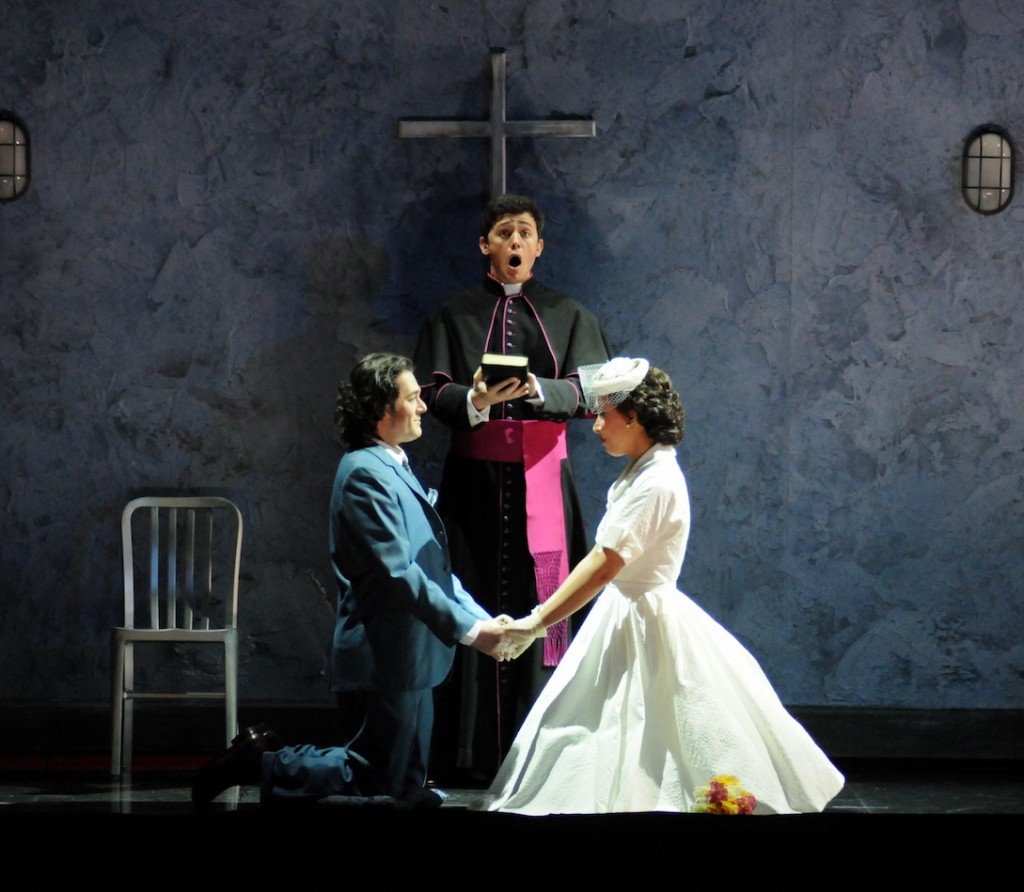
Arturo Chacón-Cruz as Romeo, Nicole Cabell as Juliette and Alexander Vinogradov as Frere Laurent in "Romeo et Juliette."
In the secondary roles, the standout was the Russian bass Alexander Vinogradov in the role of the well-meaning but bumbling cleric Frère Laurent. A slender, compact man, Vinogradov deployed a voice of immense richness and power, bringing stentorian dignity to the secret marriage ceremony performed for the two lovers.
As Romeo’s friend Mercutio, the baritone David Adam Moore brought an agile voice with a brilliant edge to his Queen Mab ballad. As Juliette’s father Count Capulet, the Russian bass Grigory Soloviov started out sounding underpowered in his welcome of the guests to the party but gained in strength as the opera continued, bringing an ominous power to his dialogue with Juliette about who she should marry.
In the long, taunting aria of the page Stéphano, the soprano Jennifer Rivera gave a performance that was almost too beautiful, bringing a womanly fullness and ardor to the role of an adolescent boy. The Mexican tenor Evanivaldo Correa Serrano sounded appropriately young and hotheaded as Juliette’s cousin Tybalt. As Juliette’s nurse Gertrude, the mezzo-soprano Shirin Eskandani did a serviceable job without imposing any lame comic touches that would have detracted from the performance.
Will Crutchfield, opera director of the Caramoor International Music Festival in upstate New York, is a singer’s conductor, never overpowering what’s taking place on stage. Yet under his baton, the orchestra lacked its usual energy. The prelude and first act came off in a ploddingly slow tempo, without the feeling of headlong, impending tragedy implicit in the first frantic bars of the opera. He quickened the pace in the following acts and the orchestra performed competently as always. But Gounod’s achingly romantic harmonies often sounded fluffed over, without being given the weight and passion they deserved.
The Palm Beach Opera Chorus did a worthy job throughout, singing with rich, well-balanced tone that brought out Gounod’s tension-filled harmonies after Tybalt’s death and Roméo’s exile.
Palm Beach Opera’s production of Gounod’s Roméo et Juliette repeats 7:30 p.m. Saturday with Janai Brugger-Orman as Juliette and Richard Troxell as Roméo, and 2 p.m. Sunday with Nicole Cabell and Arturo Chacón-Cruz in the starring roles. pbopera.org, 561-832-7469.
Posted in Performances
Leave a Comment
Sat Feb 25, 2012
at 2:40 pm
No Comments
